-
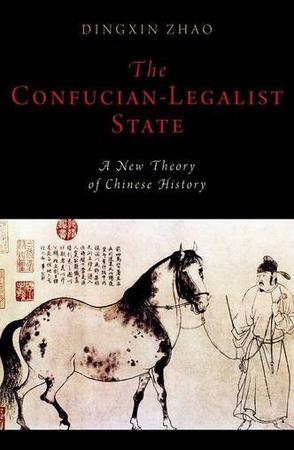
The Confucian-Legalist State
In the The Confucian-Legalist State, Dingxin Zhao offers a radically new analysis of Chinese imperial history from the eleventh century BCE to the fall of the Qing dynasty. This study first uncovers the factors that explain how, and why, China developed into a bureaucratic empire under the Qin dynasty in 221 BCE. It then examines the political system that crystallized during the Western Han dynasty, a system that drew on China's philosophical traditions of Confucianism and Legalism. Despite great changes in China's demography, religion, technology, and socioeconomic structures, this Confucian-Legalist political system survived for over two millennia. Yet, it was precisely because of the system's resilience that China, for better or worse, did not develop industrial capitalism as Western Europe did, notwithstanding China's economic prosperity and technological sophistication beginning with the Northern Song dynasty. In examining the nature of this political system, Zhao offers a new way of viewing Chinese history, one that emphasizes the importance of structural forces and social mechanisms in shaping historical dynamics. As a work of historical sociology, The Confucian-Legalist State aims to show how the patterns of Chinese history were not shaped by any single force, but instead by meaningful activities of social actors which were greatly constrained by, and at the same time reproduced and modified, the constellations of political, economic, military, and ideological forces. This book thus offers a startling new understanding of long-term patterns of Chinese history, one that should trigger debates for years to come among historians, political scientists, and sociologists. -
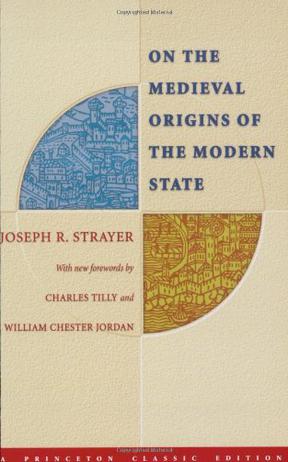
On the Medieval Origins of the Modern State
The modern state, however we conceive of it today, is based on a pattern that emerged in Europe in the period from 1100 to 1600. Written from the experience of a lifetime of teaching and research in the field, this short, clear book is the classic work on what is known about the early history of the European state. Charles Tilly's foreword shows how Strayer's book set the agenda for a whole generation of historical analysts, not just in medieval history but also in the comparative study of state formation. William Chester Jordan's foreword addresses the scholarly and pedagogical setting within which Strayer produced his book, and how this both enhanced its accessibility and informed its focus on peculiarly English and French accomplishments in early state-building. -
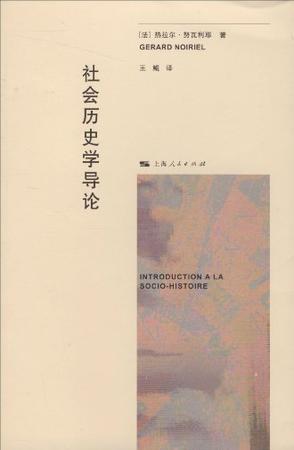
社会历史学导论
本书是一部导论性著作,介绍了介于社会学和历史学之间的新学科--社会历史学。全书在对社会历史学做总体介绍之后,从学科史的角度,以一些著名的代表性学者如马克思、涂尔干、韦伯、布洛赫、艾利亚斯、布迪厄等为例,结合法国和世界历史,介绍分析了社会历史学产生的学术背景和需要处理的如经济与社会问题、政治问题、文化问题等,最终确定了社会历史学的研究方法和社会历史学家所应保持的立场。附录部分则以两个案例示范了社会历史学的研究方法。 -
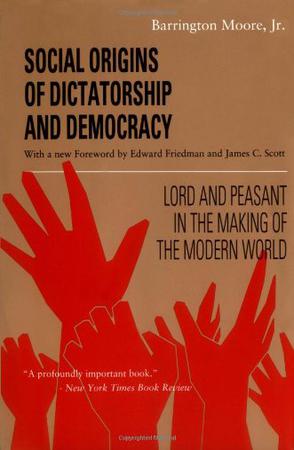
Social Origins of Dictatorship and Democracy
"A landmark in comparative history and a challenge to scholars of all lands who are trying to learn how we arrived at where we are now." -The New York Times Book Review -
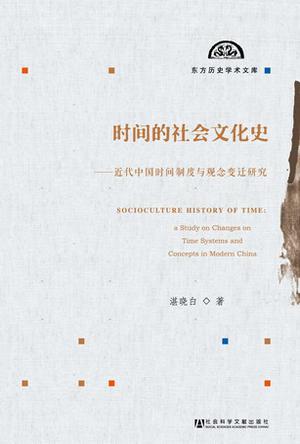
时间的社会文化史
本书首次系统专门地以“时间”为主题,从社会文化史角度较为完整地勾勒了近代时间制度和时间观念变迁的整体面貌,书中内容大致可以分为三部分,一是对近代中国时间制度变革的历史探源,确定了近代中国新时间制度所包含的主要内容,透视了其在近代的流变及其整体变化趋势;二是集中于描摹近代时间社会化的多元面相,揭示其物质基础及动力机制;三则对时间观念的近代转变进行了深入的考察,其内容涵括了近代人们对日常生活时间、历史时间、哲学时间等多层次的理性认知。 -
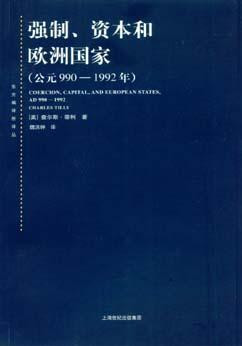
强制、资本和欧洲国家
《强制、资本和欧洲国家(公元990-1992)》是对在近千年里欧洲国家的演化的一个即时的解读和诠释。作者研究的中心问题是关于自从公元990年以来在欧洲流行的国家类型方面的巨大差异。 蒂利教授展示了权力的运用者和资本的操纵者之间相互作用如何导致三种国家的形成,其中每一种都在欧洲流行了很长时期--收取贡赋的帝国、分裂主权的体系和民族国家。他认为,把欧洲国家的发展设想为一种简单的非线性的过程是站不住脚的,而且国家本身之间的关系在它们的形成和演化中是一个重大因素。本书的最后部分接着把这些洞见运用于1945年以来的第三世界国家的历史中。 查尔斯·蒂利是社会研究新学院的著名教授,他在那里指导了社会变化研究中心。